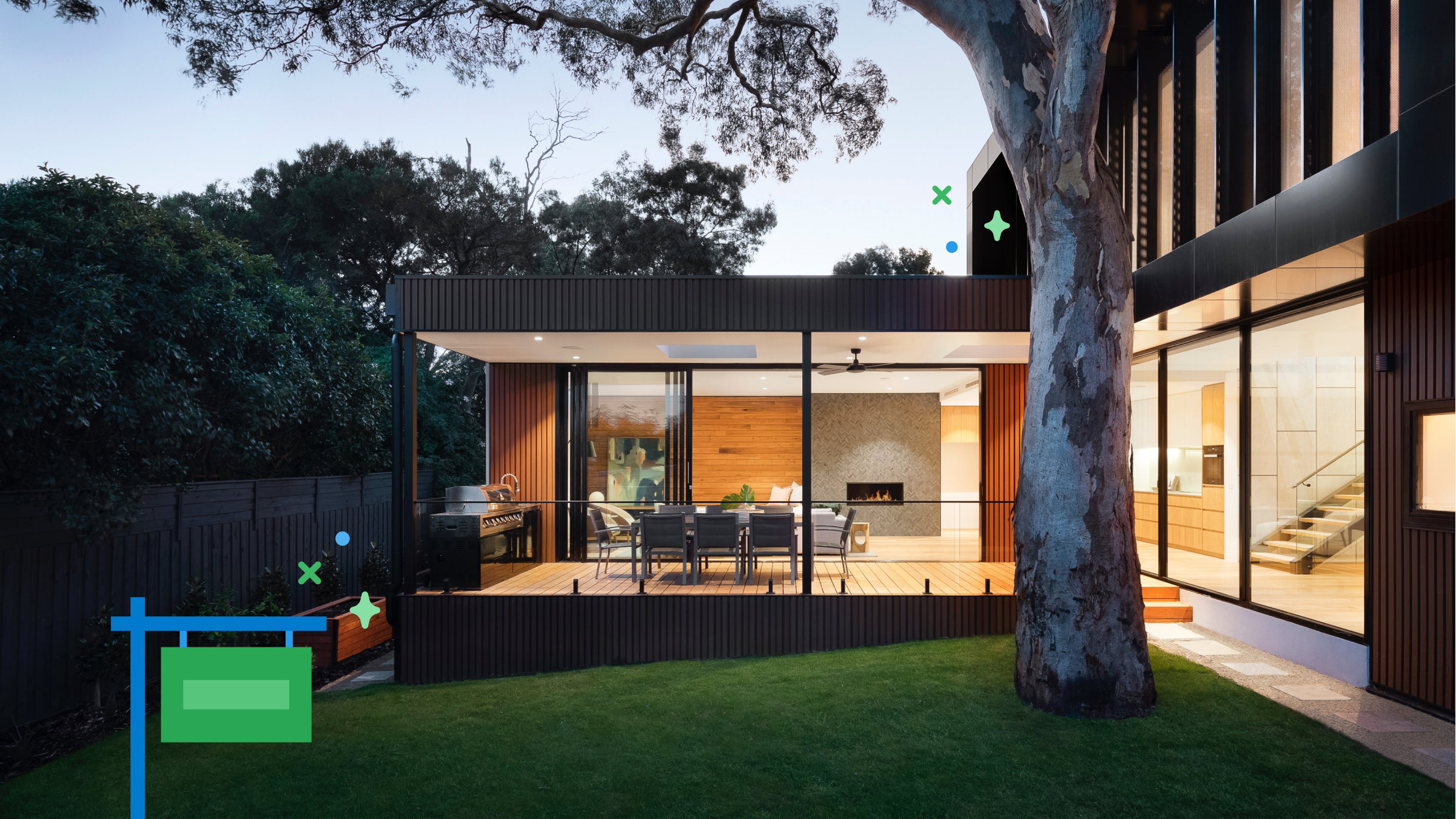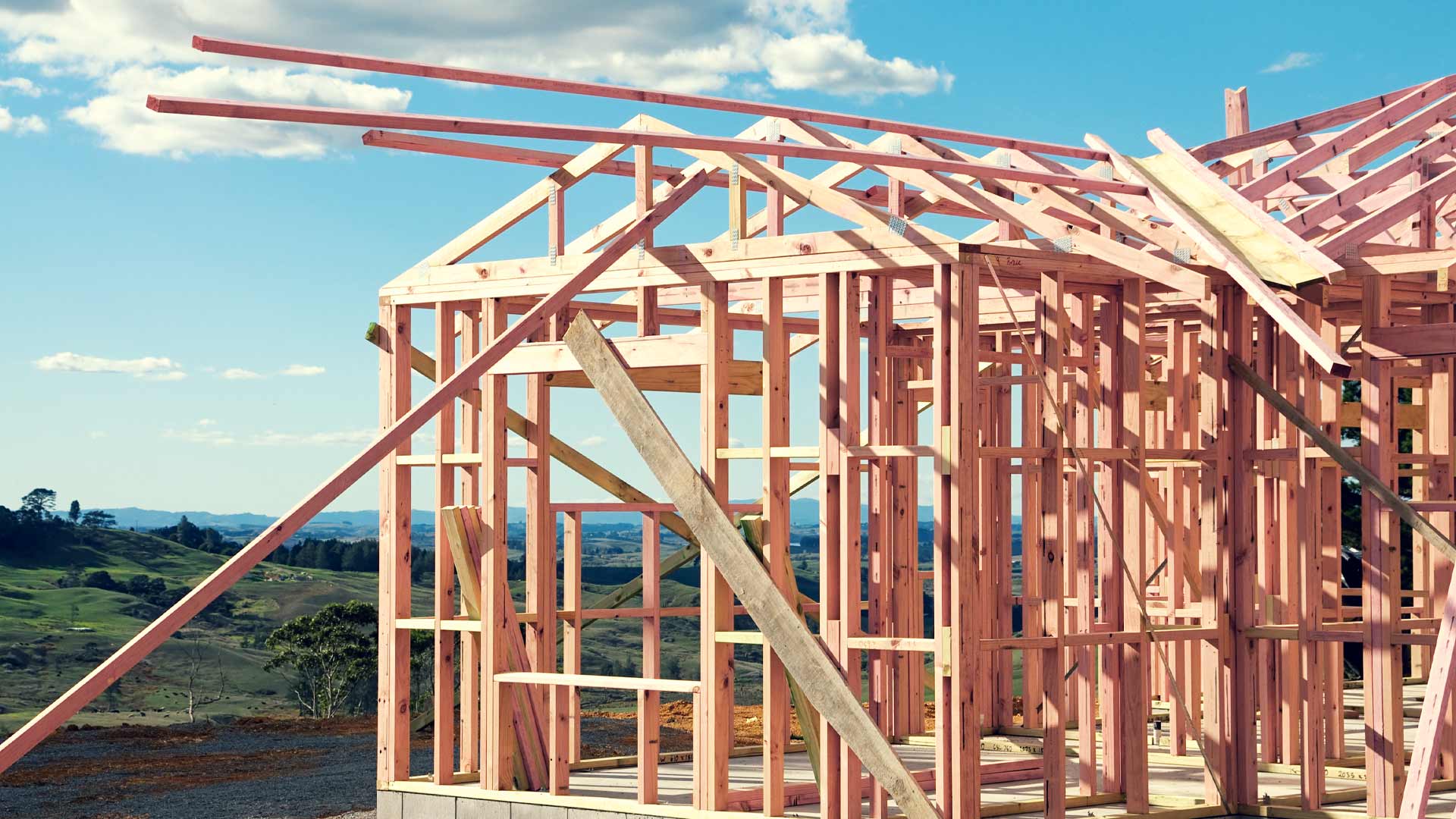Buying guide
The process for buying a new build in New Zealand
Here’s how it works.
For some, buying a newly built home is the dream. If you want a house that’s built with the latest materials and tech, untouched by another owner, there’s no other option.
But the process for buying new is a little different from purchasing a pre-existing home in New Zealand so we’ve put together this handy guide to answer all your questions on what to expect.
Buying a new build: the process
As you’re probably learning with real estate, there’s rarely a single, universal way of doing things. And, with new builds, you also have options. Here are some of the most common ways Kiwis buy brand new homes:
Buying off-plan
Buying a home “off plan” means that you commit to purchasing a home before its finished being constructed. This could be before building starts, or part way through the development project.
There are a few important things to know about buying a property in this way:
- Price: the price of an off-plan home is usually fixed although in a changing environment where the supply of materials is harder to predict, this is not a given.
- Take legal advice: ask your lawyer to assess the sale & purchase agreement or contract. They’ll look into any sunset clause or cost escalation clause to make sure the contract is fair.
- Payments: typically, you’ll pay your initial deposit prior to development starting, to be held in a trust that the developer can’t touch, and then you pay the rest when the home is completed. This is known as a turn-key arrangement.
- Loans: you wouldn’t normally expect to pay interest on your home loan until you settle. Work closely with your mortgage adviser to find all the possible grants available to buyers of new homes – Kāinga Ora's 'First Home Partner' scheme is only available for new build properties – and the good news is new builds are exempt from LVR restrictions.
Mortgage Lab mortgage adviser, Christiana Stevenson, says it’s worth checking what the Homestar rating of the property will be because there can be benefits like interest rate discounts if the property has a Homestar rating of 6 or higher.
A word of warning, buyers need to be mindful of how long the build is expected to take, says the mortgage adviser. The majority of lenders require approval for a turn key property to be renewed every 90 days until settlement. If your financial situation changes, the approval could be withdrawn.
With off-plan homes, you'll usually pay a deposit before development starting, and then nothing else until the project finishes.
Buying land and then building a home
In this instance, you purchase a section and then contract a home builder to construct a property on it.
If you’re doing a house and land deal with a developer, generally the builder will have a portfolio of house designs you can choose from, which might give you the chance to personalise the design in some ways. When buying a house and land package, it’s particularly important to know about and understand, any covenants that will dictate how you can and can’t use the land once you’re living in the property.
If you aren’t keen on anything you’re seeing in the builder’s portfolios, another option would be to engage an architect or building company who you can work with to design your dream property. Of course, this will be a more expensive route, and it’ll take longer than choosing from a builder’s standard designs.
Questions to ask when buying a new build home
1. Do the developer’s credentials give you confidence?
One of the questions to ask yourself before signing a contract with a developer or builder is whether or not you trust them to deliver your new build home on time and on budget. What is the economic climate like, are any house builders going under at the moment?
A few things you can do to get peace of mind include:
- Checking out reviews from previous customers.
- Were previous projects delivered on time?
- Have they ever run into difficulties with local councils?
- Establishing what other developments are they working on and how your development is prioritised.
- Finding out who they subcontract to – you’ll need to check these guys out too.
- Looking around previous developments they’ve completed.
You need to be comfortable with your builder before going ahead with a purchase.
2. Have you done your standard due diligence?
As well as sussing out the developer or builder, you still need to do the standard steps of due diligence for buying a home in New Zealand.
This includes getting a lawyer to check all the contracts relating to the build, land title and other important legal aspects of buying a home.
3. Will the location work long-term?
A common issue with buying new build properties in New Zealand is that they tend to be further out than existing homes, although larger cities like Auckland have an increasing amount of infill housing in popular areas. While it can be easy to get carried away with the practicalities of engaging a builder and choosing a house design, you need to remember that you’ll probably be in this house for a few years, so it needs to suit your lifestyle in the future, rather than just for now.
4. Do you really know what you’re buying?
If your home is yet to be built or completed, it can be hard to get a sense of what life will actually be like once you live in it.
This means you should take any opportunity to look at show homes or virtual tours that the developer will offer. If you do get the opportunity to attend a show home, we recommend bringing a tape measure with you, as you would to a normal open home. Ask if any materials will be different in your own home so you know what to expect and avoid disappointment. Also have plans and drawings to refer to throughout. Use this information to help do a thorough pre-settlement inspection once the home is near completion, advises Mortgage Lab’s Christiana Stevenson.
5. Can you make customisations?
If you’re building your own property, you’ll have free rein on customising your home, with the only limits being your budget, section size and imagination.
With ‘off-plan’ homes, your choices will be more limited. It’s worth discussing with the developer whether it’s possible to add extra modifications into your agreement, but these will almost certainly incur extra costs.
*We hope this article has provided some helpful information. It's based on our experience and is not intended as a complete guide. Of course, it doesn’t consider your individual needs or situation. If you're thinking about buying or selling a property, you should always get specific advice.
Other articles you might like



